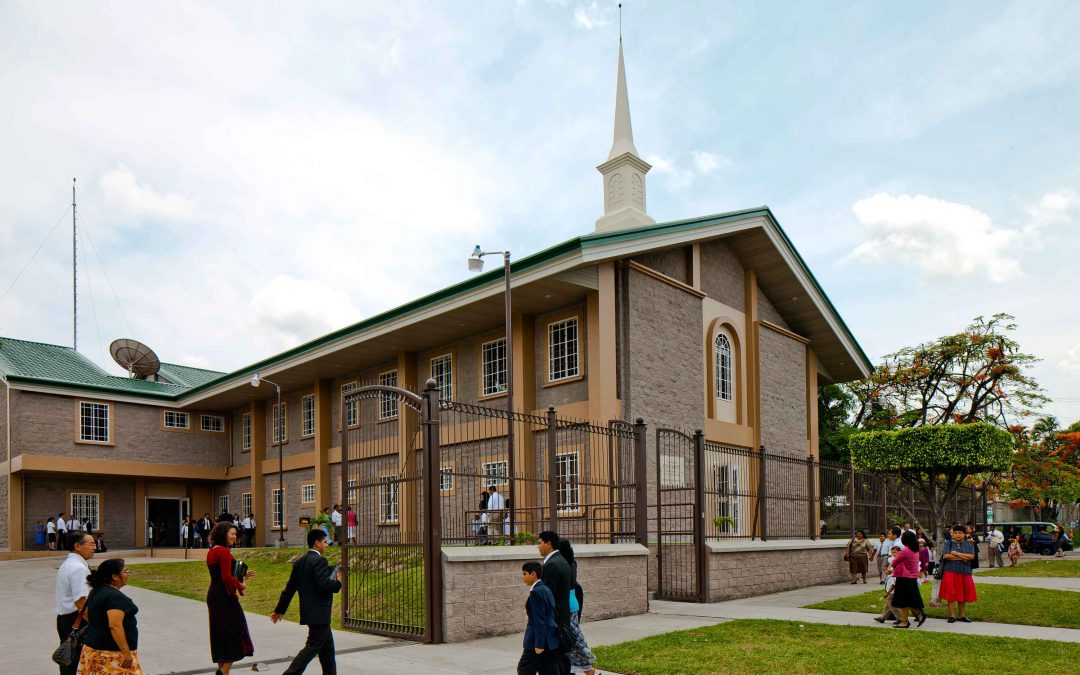Question
Dear Gramps,
Does a Mormon bishop grant “remission” or “forgiveness” for sins, the way Roman Catholic priests claim to do (not themselves, but through the power/authority vested in them by God)? As I have mentioned, I am a former Roman Catholic, but I have not been to a Catholic Church in years, and I find it objectionable the way some people will carry on for six days, then go into the confessional on Sunday for “forgiveness” and wipe out the wrongs of the previous six days, as if they are getting Jesus to pay off a credit card debt for them. I don’t mean to sound sacrilegious, but it’s one of the reasons I am not a Catholic anymore. Also, regarding forgiveness of sins, among some Protestants, they seem to believe that if they simply “confess Christ as their Savior” then they are “saved.” Can a person simply rely on Jesus to save them, when they knowingly engage in wrongful conduct, and have no sincere repentance, but simply give lip service to God and Christ. What is the position of the LDS Church regarding confession, repentance, and forgiveness? Thank you for your thoughtfulness on these matters. Sincerely,
Shane
Answer
Dear Shane,
After committing serious sin a member of the Mormon Church may be disciplined in various ways. The calling of a bishop is to be a judge in Israel, and thus the bishop is the proper authority to whom one should confess his sins. One of the chief roles of a bishop in this regard is to give inspired counsel, encouragement and support to the sinner to help him repent of his sins.. If the sins are of a serious nature the bishop may invoke disciplinary action on the members of his Ward who do not hold the Melchizedek priesthood. Members of the Melchizedek priesthood are referred to the Stake President for disciplinary action. Although the bishop or stake president can impose disciplinary action, they are not empowered to forgive sin. Only one person can do that, and that is God, the Father, through the great atoning sacrifice of the Lord, Jesus Christ. The Savior has said—
I, the Lord, will forgive whom I will forgive, but of you it is required to forgive all men (D&C 64:10).
Elder Richard G. Scott, of the Quorum of Twelve Apostles on the Mormon Church, has given this inspired counsel—
“I testify that when a bishop or stake president has confirmed that your repentance is sufficient, know that your obedience has allowed the Atonement of Jesus Christ to satisfy the demands of justice for the laws you have broken. Therefore you are now free. Please believe it. To continually suffer the distressing effects of sin after adequate repentance, while not intended, is to deny the efficacy of the Savior’s Atonement in your behalf” (Elder Richard G. Scott, Peace of Conscience and Peace of Mind, Ensign, Nov. 2004, p.15).
So the bishop or stake president may judge when repentance is sufficient for the return of fellowship in the Church, and that person’s sins will be forgiven by the Lord, as His authorized representative are acting under the inspiration of the Lord. But it is the Lord who forgives whom He will forgive, not the ecclesiastical authorities.
Concerning the beliefs of many Protestant churches that we are saved by grace, this is a doctrine that is also believed by the Mormon Church, but with some very essential provisos. In the Book of Mormon we read—
For we labor diligently to write, to persuade our children, and also our brethren, to believe in Christ, and to be reconciled to God; for we know that it is by grace that we are saved, after all we can do. (2 Ne 25:23)
This important proviso, we are saved after all we can do, shows that faith, confidence, expectation, confessing Jesus, etc., may all be necessary for forgiveness of sin, but by themselves they are simply not enough. And all that men could do to obtain forgiveness is also not enough to satisfy the demands of justice for the broken law. Therefore it required the great atoning sacrifice of the Savior of mankind to receive, accept and withstand the punishment exacted by the law of justice, so that the Father could extend His mercy in forgiving repentant sin without violating the law of justice. This is what James was referring to in the New Testament in James 2:14-18—
What doth it profit, my brethren, though a man say he hath faith, and have not works? can faith save him?
If a brother or sister be naked, and destitute of daily food,
And one of you say unto them, Depart in peace, be ye warmed and filled; notwithstanding ye give them not those things which are needful to the body; what doth it profit?
Even so faith, if it hath not works, is dead, being alone.
Yea, a man may say, Thou hast faith, and I have works: shew me thy faith without thy works, and I will shew thee my faith by my works.
Gramps







